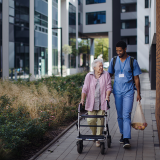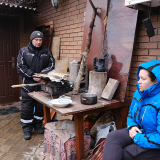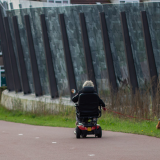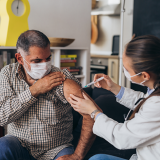
Условия и качество на живот
Условията и качеството на живот е една от шестте основни дейности в работната програма на Eurofound за периода 2021—2024 г. Eurofound ще продължи да набелязва и анализира ключовите аспекти, свързани с подобряването на условията на живот на хората в Европа, включително информация за усещането им за качеството на живот и обществото. След като COVID-19 пандемията и последвалата икономическа криза засегнаха силно живота на хората, Eurofound ще продължи да проучва въздействието на кризата върху гражданите на ЕС през различните етапи от живота.
През периода 2021—2024 г. изследванията на Eurofound ще предоставят важна информация за предизвикателствата и перспективите в областта на условията и качеството на живот в ЕС и за ролята на различни инициативи, целящи облекчаване на социалните трудности, пред които са изправени различни групи от населението. От особен интерес са последиците за по-възрастните хора и нуждите им от грижи, младежите и тяхното социално приобщаване и социална мобилност, както и различните последици от кризата за мъжете и жените .
Обществените услуги в ЕС имаха важна роля за преодоляване на значителни трудности и справяне с извънредното положение поради пандемията от COVID-19. Съответно, те ще бъдат оценени подробно, като акцентът ще се постави върху въпроси като качество, достъп и достъпност. Както е видно от предишни констатации, последиците от кризата са неравномерно разпределени сред дадени групи в зависимост от възрастта, отговорностите за полагане на грижи и равновесието между професионалния и личния живот , поради това Eurofound ще извърши допълнителен анализ в тази посока.
В координация с Европейския институт за равенство между половете (EIGE), Eurofound планира да проучи неравенството между половете в много измерения чрез изследване на въздействието на кризата поради COVID-19 върху мъжете и жените в контекста на участието им в пазара на труда, материалните условия на живот и благосъстоянието с цел определяне на разликите и оценяване на последиците за неравенството между половете.
- Инфографика: Условия на труд и качество на живот в ЕС































